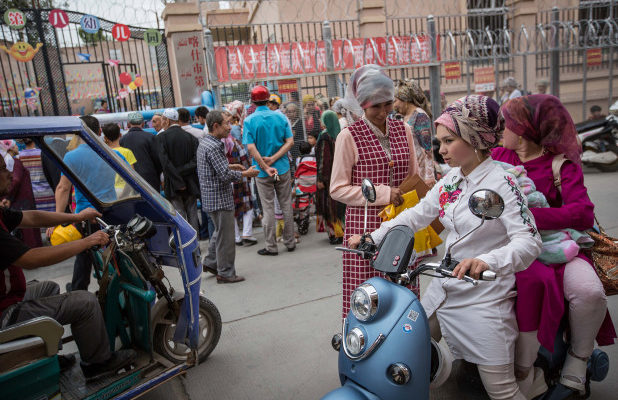By Kussin
If you’re looking to book an Airbnb in China, like one nice-looking one-bedroom condo in Chengdu with a flat-screen television — you can’t be one of the nation’s ethnic minorities.
“Due to local regulation,” reads its listing — which details that foreigners, as well as guests from Taiwan or Hong Kong, are not permitted to stay there — “we are not qualified to serve … Tibetan guests [and] Uyghur guests.”
China has an ethnic Han majority, but the West of the country is home to the Tibetan and the largely Muslim Uyghur populations with separatist leanings — the latter of whom have particular difficulties traveling through the Asian nation.
In a report published Friday, Wired found 35 Airbnb listings in China that specifically banned Tibetans and Uyghurs — as well as other domestic minorities.
One since-deleted post said that no member of the mostly Muslim Hui people could stay in the property. Another barred Kazakhs, another largely Muslim minority, from booking reservations.
(Wired writes that 15 or 35 racially discriminatory posts identified were taken down after reaching out to Airbnb’s press representatives.)
“In general the process in China is that any hotel that hosts Uyghurs would get an obligatory police visit,” Maya Wang, senior China researcher for Human Rights Watch, told Wired. “These facilities generally ban any Uyghurs … which is of course highly discriminatory, to prevent themselves getting in trouble with the authorities.”
Reached by The Post, an Airbnb spokesperson says, “Airbnb takes reports of discrimination very seriously, evaluates these incidents on a case-by-case basis and takes action accordingly.” However, even though all Airbnb hosts must agree to Airbnb’s community commitment against bias, they are also expected to comply with local rules.
Adiljan Abdurihim, 34, a Uyghur who now lives in Norway, told Wired the travel discrimination isn’t a surprise. When Abdurihim’s relatives would travel to Beijing and try to stay in hotels, the front desk attendants would immediately call the cops. Then, hours of interrogations followed, which generally concluded with the people being sent to a separate hotel approved by Chinese authorities. Ultimately, they resorted to sleeping in the Beijing airport during their stays.




